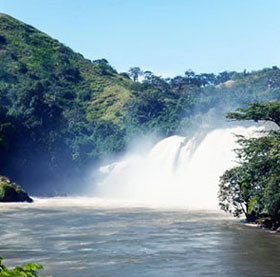- Argentina(Español)
- Österreich (Deutsch)
- Belgium(English)
- Belgique (Français)
- België(Nederlands)
- Brasil (Português)
- Canada(English)
- Canada (Français)
- Chile(Español)
- China(Chinese)
- Colombia(Español)
- Czechia(Czech)
- Denmark(Danish)
- República dominicana(Español)
- France (Français)
- Deutschland (Deutsch)
- Hungary(Hungarian)
- Italia(Italiano)
- 日本(日本語)
- Kazakhstan(Kazakh)
- Kazakhstan(Russian)
- Luxembourg(Français)
- Mexico(Español)
- Maroc(Français)
- Nederland(Nederlands)
- Panamá(Español)
- Perú(Español)
- Poland(Polish)
- Portugal (Português)
- Puerto Rico(Español)
- Romania(Romanian)
- Slovakia(Slovak)
- España (Español)
- Taiwan(Chinese)
- Tunisie(Français)
- Turkey(Turkish)
- Ukraine(Ukrainian)
- United States(English)
- Uruguay(Español)
- Venezuela(Español)
Risk Outlook February 2020-Angola

President João Lourenço will continue a reform drive in 2020, pursuing fiscal consolidation and privatization of key state-owned firms. Despite this, the economy will contract further in 2020, as public frustration with declining living standards spurs protests.
Security Environment
Economically motivated protests are likely in 2020, amid deepening public discontent with elevated inflation, unemployment, and corruption.
Upon his inauguration in 2017, President João Lourenço promised to oversee an economic boom and create 500,000 jobs, which have failed to materialize.
After a long period of painful economic reforms, goodwill toward the government is thinning.
Youth-led protests began in August 2019, reflecting growing dissatisfaction. In September 2019, thousands of student protesters threw projectiles at a jobs fair in Luanda, while shouting anti-government slogans.
Further incidents are likely in 2020 — amendments to tax and subsidies will be likely flashpoints — and will be concentrated in Luanda.
Protests are unlikely to target foreign firms directly, but roadblocks may disrupt business.
Police can disperse protests within hours, reducing the likelihood of extensive property damage.
Separatist activity by the Frente para a Libertação do Enclave de Cabinda (FLEC) group continues to elevate security risks in the Cabinda enclave.
Armed militants typically target military assets, although oil company convoys have also been targeted. Vehicles on the N3 route will be particularly exposed to attacks.
In February 2019, FLEC killed three soldiers and a police officer. However, the group lacks the capabilities to carry out attacks in the rest of Angola, with incidents concentrated in north eastern Cabinda.
Trading Environment
In 2020, Lourenço is expected to continue implementing a program of economic reforms, as part of the country’s participation in a three-year IMF program.
Since acceding to the presidency, Lourenço has worked to reduce the country's reliance on oil revenues, encourage foreign investment, and address structural economic weaknesses. For example, in October 2019, Angola introduced a 14% value-added tax and brought the kwanza exchange rate toward a market-determined rate.
Despite a commitment to reforms, Angola’s economic performance is likely to be weak in 2020.
Its maturing oil sector is experiencing declining production, falling from 1.81 million barrels per day (bpd) to 1.51 million bpd in 2018.
The oil sector still accounts for approximately 90% of Angolan exports and, amid structurally lower global oil prices, this will generate notable economic headwinds. As a result, the economy is forecast to contract for the fifth consecutive year in 2020, with real GDP declining by 0.2%.
While Lourenço is likely to maintain a conservative fiscal stance, the oil sector's declining fortunes are likely to ensure that Angola continues to post widening fiscal deficits in the coming years.
The 2020 deficit is forecast at 2% of GDP, rising to 3.1% in 2021.
Given a lack of fiscal space, public investment is likely to be limited in 2020.
Sovereign credit risks will remain elevated in 2020, given continued exposure to external shocks.
Over the next decade, external debt will average approximately 52% of GDP.
A collapse in global oil prices or the value of the kwanza would place significant pressure on the government’s ability to meet debt obligations.
Investment Environment
 Pricing Outlook
Pricing Outlook
1.25%-1.5% p.a
CEND Risk Pricing Range
3.25%-3.5% p.a
Sovereign Credit Risk Pricing Range
Under Lourenço, the government has worked to increase the private sector’s role in the economy.
It plans to privatize 195 state-owned enterprises (SOEs) between 2019 and 2022. It is expected that 175 of these will be sold through public tender, 11 through public auction, and nine through initial public offerings.
Following the official publication of Angola's privatization program, companies expected to be privatized in the coming years include Caiza Angola, Banco Angolano de Investimientos, Mota Engil, and Unitel. Meanwhile, the process to list 30% of oil company Sonangol is expected to begin in 2022.
Meanwhile, the process to list 30% of oil company Sonangol is expected to begin in 2022.
The government has further sought to boost the business environment, by removing rules that required foreign entities to partner with a local firm. However, corruption is likely to remain a concern for investors in the near term.
Lourenço has implemented an anti-corruption drive, particularly targeting relatives of former President José Eduardo dos Santos — for example, freezing the assets of daughter Isabel dos Santos.
Despite this, corruption will continue to generate reputational risks for firms operating in Angola, as politically connected individuals maintain extensive economic interests.
Recent revelations regarding alleged fraudulent activity of Isabel dos Santos are likely to further damage Angola's reputation.
Rating Outlook: Strikes, Riots, and Civil Commotion; Terrorism; Sovereign Credit Risk; Legal and Regulatory Risk.
Key Takeaways
- Economically motivated protests are likely in 2020, amid deepening public discontent with elevated inflation, unemployment, and corruption.
- In 2020, President João Lourenço is expected to continue implementing a program of economic reforms, as part of the country's participation in a three-year International Monetary Fund program.
- Despite a commitment to reforms, Angola's economic performance in 2020 is likely to be weak.
- The economy is forecast to contract for the fifth consecutive year in 2020, with real GDP declining by 0.2%.
- Angola plans to privatize 195 state-owned enterprises between 2019 and 2022. It is expected that 175 of these will be sold through public tender, 11 through public auction, and nine through initial public offerings.
Placeholder for editing the content for: marsh/components/content/rightrailtext
Placeholder for editing the content for: marsh/components/content/rightrailtext
Placeholder for editing the content for: marsh/components/content/rightrailtext
Placeholder for editing the content for: marsh/components/content/rightrailtext
Placeholder for editing the content for: marsh/components/content/rightrailtext
Placeholder for editing the content for: marsh/components/content/rightrailtext
Related Resources
- Risk in Context Podcast: Shifting Political and Credit Risks
- Risk in Context Podcast: Shifting Political and Credit Risks
- Oil Price Dynamics: Economic Risks in the Middle East and Africa
- Political Risk Map 2020
- Political Risk Map 2020: Mid-Year Update for Middle East and Africa
Placeholder for editing the content for: marsh/components/content/rightrailtext